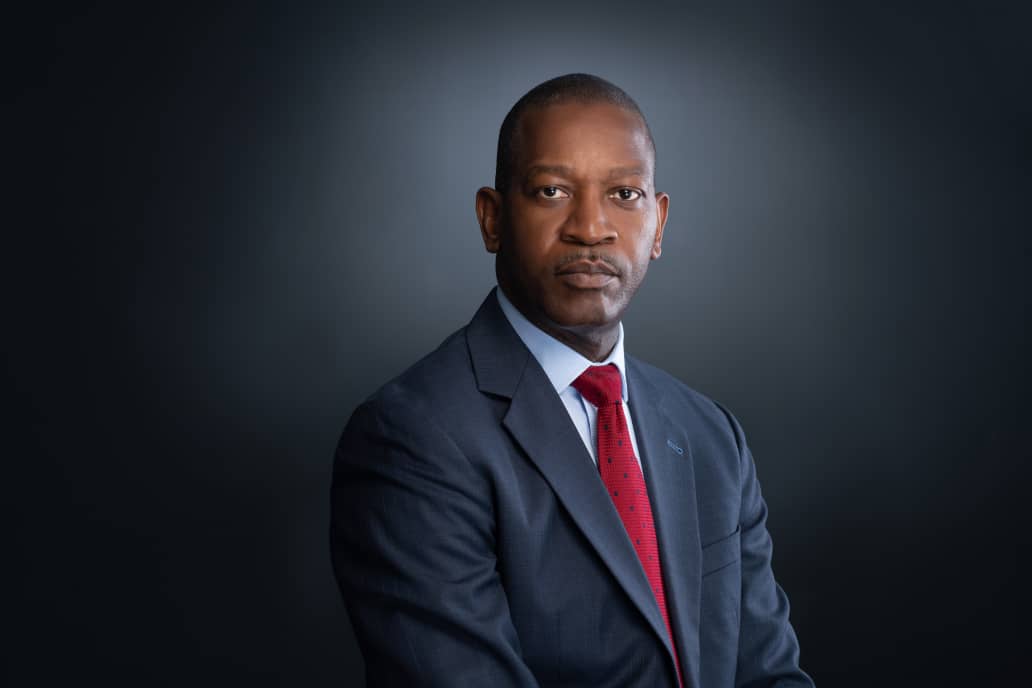A Paper Delivered by Dr. Babatunde Ajibade, SAN, FCIArb at the Bar and Bench Forum of the Calabar Branch of the Nigerian Bar Association, held during the 2020 Law Week on 30th January 2020.
PROTOCOLS
INTRODUCTION
I am extremely grateful to the Chairman and the Executive Committee of the Calabar Branch of the Nigerian Bar Association for inviting me to deliver this keynote address on “The Bar and the Bench: Siamese Twins?” As I mentioned to the Chairman subsequent to receiving the invitation, this topic is one that is dear to my heart; so much that I believe it is God’s hand directing that I be the one selected to address it. I am extremely passionate about the legal profession and about the need for the profession to unite in order to regain its strength and its pride of place within society. I am also convinced that repositioning and nurturing the relationship between the Bar and the Bench is an essential element that is required to achieve this objective.
Research into the precise language used in the topic of this paper led me to a very interesting story of two men called Chang and Eng Bunker. The story can be easily found on Wikipedia. A great many of us do not know these men. I will briefly talk about them in order to set the stage for the serious issues we need to address.
THE STORY OF THE TWINS
These two men were conjoined twins. Their livers were fused in the ligament connecting their sternums. One could not leave the other and they had to collaborate to survive.
They became entertainers, they were stars. They married local sisters, and fathered 21 children, several of whom accompanied them when they went touring. Chang’s and Eng’s respective families lived in separate houses, where the twins took alternating three-day stays. Eng died hours after Chang at the age of 62.
This duo was from Siam (in present day Thailand), hence the phrase “Siamese twins.”
While the entire life story of the twins is important, I will focus on the story of their death for the purpose of this conversation.
In the final days of their lives. while Eng enjoyed good health, most of Chang’s right side became paralysed in 1870 after a stroke, and eventually his right leg needed to be kept in a sling. From then on, Chang—becoming a heavy drinker—remained in poor health. Chang contracted bronchitis in January 1874, and the family physician recommended that he stay indoors and warm. On January 15, the Bunkers traveled through cold weather to Eng’s house. Chang seemed to have recovered somewhat by the next day but at night was unable to breathe comfortably. On Chang’s urging, the brothers slept sitting upright on a chair, in front of a fireplace. Eng was healthy physically yet weary from spending the past week with a seriously ill Chang, so he asked to move to their bed after hours of drifting in and out of sleep.
Early in the morning of January 17, one of Eng’s sons checked on the sleeping twins. “Uncle Chang is dead,” the boy reportedly said to Eng, who responded, “Then I am going!” The family doctor was quickly sent for, but Eng soon died, reportedly just over two hours after his brother’s death.
The moral here is, the lives of the twins were so intertwined that it was impossible for one to live with the other dead.
This story gives real significance to the title of this paper. It indicates to me that the organisers are fully cognizant of the possibility that the relationship between the Bar and the Bench is one in which the death of one will result in the death of the other. I will now explore this possibility.
THE BAR AND THE BENCH?
The Constitutional requirement for appointment as a judge or justice of a Superior Court of Record in Nigeria is primarily that the person to be appointed must have been called to the Bar and qualified to practice law for a specified period of time. For most lower courts, the situation is similar. In other words, to be on the Bench, one has to first be a lawyer. This also means that if the Bar no longer exists, at least under the current legal dispensation, there will be no Bench.
In addition to the above, both the Bar and the Bench are required to play a role in justice delivery. The Bar represents litigants and helps them follow the various legal requirements for their case to be heard and decided. The Bar also helps to guide the Judge in arriving at a just decision. The Bench, upon listening to the submissions of the Bar, is duty bound to make a decision.
This means that the two groups are partners in the dispensation of justice. One side complimenting the other to ensure that justice is done. At least, that’s how it is supposed to be.
ARE THESE TWO SIAMESE TWINS?
From the above analysis, it is clear that lawyers and Judges are also figuratively conjoined twins. Both are officials in the temple of justice and are supposed to compliment each other. Once one side of the duo is no longer effective, much like Chang and Eng, the other can no longer work.
The firm I have the privilege of managing (SPA Ajibade & Co) has been hosting a series of Annual Business Luncheons since 2008 and in the years between 2013 and 2015, we ran three consecutive editions that had related themes that are relevant to the subject of our discourse today. These were “Achieving Judicial Excellence” (2013); “Eliminating Delays in Civil Justice Delivery” (2014); and “Regulation and Discipline in the Legal Profession” (2015). These events are held in Lagos and they have all, but a couple, been chaired by Justices of the Supreme Court, either serving or retired.
The outcome of the deliberations at these three editions established to my mind beyond doubt that the Bar and the Bench are indeed Siamese Twins and that the ineffectiveness of one naturally leads to the ineffectiveness of the other. The deliberations also established that part of the problem we are experiencing in the profession in Nigeria arises from an insufficient appreciation of this fact and of the consequences arising therefrom.
Unpacking this a little, it is significant to recognize that the burden of judicial office, even under good working conditions, is an onerous and difficult burden. It requires extreme measures of diligence, patience, commitment, energy, capacity for hard work, intelligence, and so many other superlative adjectives. This came through clearly from the 2013 edition of our Annual Business Luncheons where the lead paper was delivered by Prof. Oba Nsugbe, QC, SAN, a distinguished Nigerian legal practitioner with dual qualification practicing out of 3 Pump Court Chambers in the City of London. The choice of Prof. Nsubge to deliver that lecture was deliberate, as he seats as a Recorder (part time Judge) in the High Court in London, England and was able to share with us details of the rigorous process that is applied in selecting Judges for appointment in that jurisdiction. Thus, it is clear to me that we need to revisit the process by which we appoint Judges to ensure that we only appoint those who have the capacity for the onerous task that the job entails.
The next two related editions in the trilogy then followed on naturally from the first. In the 2014 edition, delivered by Mr. Odein Ajumogobia, SAN it was recognized that insufficient capacity on the Bench was one of the contributing factors to the incessant and chronic delays that have best our judicial system whilst in the 2015 edition delivered by Mr. Harry Matovu, QC of 2 Brick Court Chambers in London, it was also recognized inter alia, that the insufficient capacity of the Bench to regulate and discipline members of the Bar is a contributing factor to some of the lapses in our judicial system.
The last edition was particularly interesting, as it ended with a debate between some of the Judges and senior counsel present as to whose responsibility it is to ensure discipline and proper conduct in the profession, the Bar or the Bench.
My conclusion was that the responsibility lies on both arms of the profession. Both the Bar and the Bench have to take active steps to close ranks and ensure that they address these problems. Where either arm of the profession has an issue, both arms of the profession must come together swiftly to address the issue, realizing that the continued relevance of the profession to society relies on the wellbeing of both arms working together in harmony and partnership.
PARTNERSHIP
There is no question in my mind that there is a need for a deep partnership between the Bar and the Bench. Anything other than this will mean that neither group will be able to function optimally. And this, in turn, means that the society, which relies on the judicial system to solve its problems will suffer.
To ensure that this relationship is effective, the Nigerian Bar Association, both at Branch and National levels must set up efficient and effective Judiciary Relations Committees. The task of these Committees is to ensure that this necessary partnership and relationship between the Bar and the Bench is kept in good condition to ensure the delivery of efficient and qualitative justice to society.
I was recently appointed as the Chairman of the Judiciary Relations Committee of the Lagos Branch of the NBA and we have commenced the process of engagement with the Judiciary as well as with members of the Branch to elicit the issues that the Bar and the Bench consider imperative to the attainment of the stated objective, which is ensuring the delivery of efficient and qualitative justice to society.
THE WAY FORWARD
Even without awaiting the outcome of this process, and based on my personal experiences and observations and that of members of the Bar and the Bench with whom I have interacted, I am able to identify some of the issues that currently militate against the attainment of this objective, and I will now address these briefly.
Mutual Respect
There is a general belief that the Bench does not show any respect to the Bar. This is, of course, a generalization, as I am aware of several members of the Bench who show great courtesy and consideration to members of the Bar. However, this should be a given and not an exception to the rule. The instances of lack of respect are multifarious and are not limited to the occasions when Judges address counsel without consideration but include instances such as failure to notify counsel of the fact that the Courts will not be seating; failure to apologise when the Court seats later than the scheduled time; amongst others.
It goes without saying that the Bar must show respect to the Bench at all times and under all circumstances, irrespective of the attitude of the Bench. This is one of the hallmarks of a good advocate. Counsel must have the ability to be firm in urging their clients’ cases, but must always be courteous in doing so, both to the Bench as well as to opposing colleagues.
The need for this mutual respect cannot be over emphasized. Both the Bar and the Bench must realize that we are joint service providers who owe a duty to the user of our services, which is the litigants and society at large. When litigants and the society at large form the view that we are incapable of providing the service we profess, we begin to lose our relevance and dignity. That is the situation we are facing today, with incessant instances of courts not sitting without any prior notification or justification, with the consequent delays in our justice sector.
Funding and Provision of Resources
There is also a general belief that the Judiciary as the third, and in my view the most important, arm of government, is severely under resourced and underfunded, relative to the burden it bears. This is a significant challenge that goes to the root of one of the issues I addressed earlier, to wit, achieving judicial excellence. It is difficult for the Bench to attract the type of talent that it so desperately needs, if the Judiciary is not properly funded and provided with adequate resources to operate optimally.
Whilst there are legitimate questions that may be asked about how the resources that are allocated to the Judiciary are managed, there is little doubt that these resources are inadequate. In order to establish just how far away from the ideal we are in terms of the provision of funding and resources for the judiciary, I would like to see a benchmark survey carried out that will give us a basis for comparing our judiciary with those in other jurisdictions that are considered more efficient. I believe the results of such a survey will be startling and may perhaps galvanize our government into action.
It is a matter of great regret and wonder that in this day and age, the majority of our Judges are still taking down records of proceedings in long hand; that a lot of our courts are dilapidated and lacking in the basic amenities that are required for them to function effectively; and that we have such a huge and obvious shortfall in the number of judicial personnel that are available to deal with the volume of cases that they have to contend with.
Discipline
There is no gainsaying the fact that there are bad eggs in our profession, both at the Bar and on the Bench and the prevalence of this fact is a clear indictment of our disciplinary processes and our capacity for self regulation. There is a strong perception that we are running a cloistered system in which bad behaviour is covered up and not dealt with promptly, effectively and decisively. This not only affects our public image but also militates against the attainment of judicial excellence.
It is improbable that a dishonest, badly behaved, corrupt or inefficient lawyer will transmute into an honest, incorruptible and efficient Judge. This being the case, the entire system of justice delivery is dependent on the existence of an efficient disciplinary system that enables the profession to filter out the bad eggs as effectively as possible. The disciplinary system at the Bar has not achieved this level of effectiveness and the profession must make it a matter of priority that it does.
Indeed, as I pointed out earlier, one of the issues that was hotly disputed at our 2015 Annual Business Luncheon was the question whether the onus for identifying and dealing with bad behavior at the Bar lay within the Bar itself or with the Bench, given that a lot of this bad behavior manifests in facie curiae, in the presence of the Court. The current rules guiding the discipline of lawyers are too restrictive and cumbersome, and urgent steps need to be taken to liberalise them and make them more efficient. Similarly, recent decisions of the Supreme Court, which call the efficacy of the entire structure for the exercise of disciplinary powers over legal practitioners into question need to be properly analysed and counter measures taken to ensure a disciplinary system that works.
Similarly, the disciplinary system for judicial officers is also seen to be unduly opaque. Whilst the National Judicial Council (NJC) as the body responsible for the disciplining of Judges has members of the Bar in its ranks, my understanding is that when issues relating to the disciplining of judges are to be discussed, these members are excused and excluded from the deliberations. This contributes to the perception that the Bench is resistant to transparency in the handling of its internal discipline and that this is a consequence of a desire to cover up judicial misdeeds.
The Bar and the Bench must work together to eliminate these bottlenecks in the disciplinary processes in both arms of the profession. I am convinced that the consistent and persistent attacks that the profession is suffering at the moment and the insidious attempts to undermine our independence are being fuelled by this perception that we are incapable of efficient self-regulation. Whilst we must be resolute in resisting these attempts to undermine our independence and erode the rule of law, we must simultaneously take steps to strengthen our mechanisms for self-regulation in recognition that perception is reality and we must ensure that the perception of our profession changes for the better.
Administration of the Courts
The last point I have identified as a problem militating against the objective of ensuring the delivery of efficient and qualitative justice to society is the lack of sufficient administrative capacity on the Bench. Once again, I will make reference to one of our Annual Business Luncheons, in which this issue was the central topic of discussion. This was the 2018 edition with the theme, “The Administration of the Courts v The Administration of Justice – The Benefits of Drawing a Distinction”. The guest speaker on this occasion was Mr. Fola Arthur-Worrey, a former Solicitor-General of Lagos State and one of the co-architects of the extensive reforms that took place in the justice sector in Lagos State when the current Vice-President, Prof. Yemi Osinbajo, SAN was the Attorney-General.
The thrust of the conclusions reached at this event was that Judges are better suited to the task of administering justice and not the task of administering the courts. Mr. Arthur-Worrey had done extensive research on this area and presented a comparative survey which revealed that those countries such as Nigeria and Kenya, where the Bench retained responsibility for both the administration of justice and the administration of the courts suffered from the same debilitating inefficiencies and delays, whereas countries such as the United Kingdom and South Africa where there were clear delineations between the two functions had much more efficient and functional judicial systems. Surprisingly, Mr. Arthur-Worrey noted that despite this obvious fact, the judiciary, at least in Lagos State, had been extremely reluctant to give up the burden of administration of the courts.
A relatively mundane but insightful example of the consequence of mixing up the two functions can be seen in the perennial embarrassment we have with the Annual Judges Conference. Despite the fact that this conference holds each year without fail, we still have a situation in which litigants and counsel have their matters adjourned to dates that fall within the conference week and turn up in court only to be told the court is not sitting because the presiding Judge is attending the Judges’ Conference.
In a situation where the administration of the courts is properly separated from the administration of justice, the calendar of the courts, the availability and rota of judges and even the allocation of cases based on availability and carrying capacity of the various Judges should be an administrative function, amongst other administrative functions. This will free up the Judges to focus on the administration of justice, which is their primary remit. I have had first hand experience of this whilst running cases in the United Kingdom and in Canada in conjunction with foreign firms and the levels of efficiency attained are amazing.
There are several other recommendations I have in mind for improving our justice sector, which require collaboration between the Bar and the Bench. However, I believe the above are some of the key ones that if implemented, will begin the process of ensuring efficient and trustworthy justice delivery in Nigeria. I look forward to a time when Judicial tourism will be a thing in Nigeria. When people from all over the world would pick Nigeria as a preferred place for dispute resolution because of its efficient system.
I believe this is possible and I am committed to making this happen. I implore us all to commit to playing our part in this. We must all unite to do better. We must build a UNITED BAR.
I thank the Calabar Branch for its selection of this topic, which I hold dear. I also appreciate your inviting me to speak to the topic. I hope I have addressed the question properly and I look forward to the opportunity to put some of these thoughts into action.
I thank you for your patience as you listened to my thoughts on this.
Dr. Babatunde Ajibade, SAN, FCIArb.



